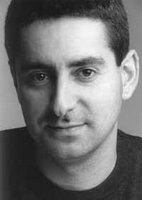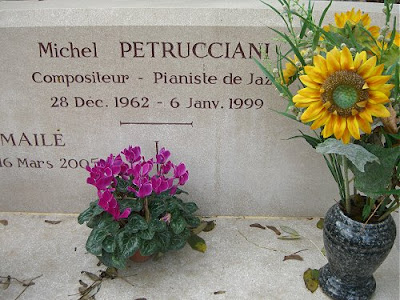New music lunch box
 Do we all agree that contemporary music needs a new audience?
Do we all agree that contemporary music needs a new audience? And do we also agree that reaching that audience takes imaginative commissioning, innovative programming, a very wide reach, and some damn hard work from the musicians?
Well, I’ve just returned from the first in the new season of Britten Sinfonia at Lunch concerts in Norwich, and I challenge anyone to show me an ensemble that are doing more to reach new audiences with contemporary music. First let’s take the concerts. The 2005/6 Britten Sinfonia at Lunch project comprises five separate concert series. Now listen to this. Each concert series consists of four lunchtime concerts played over five or six days, and not only are all the four concerts in different venues, but three are here in East Anglia, and one is in the Philharmonic Hall in Kraków, Poland, which is 750 miles away. But stay with me, it gets even better. Everyone of the five concert series features a world premiere by a contemporary composer, and to complete the virtuous circle all the concerts are being broadcast from Cambridge in BBC Radio 3’s lunchtime concert slot.
The players each deserve a medal for their sheer commitment. The East Anglian concert venues are Aldeburgh, Norwich, and Cambridge, and the Polish concerts are made possible by the budget airline flights between Standsted Airport, near Cambridge, and Kraków. In December this concert series involves an ensemble of oboe, clarinet, bassoon and horn (not to mention pianist), playing in Aldeburgh at 1.00pm on a Saturday, and Kraków at 12.00pm on a Sunday. I think someone planned that schedule before the current security restrictions on cabin baggage! You can catch up with the travel tales of the Sinfonia’s peripatetic oboeist via Nicholas Daniel’s own blog.
The Britten Sinfonia is a flexible ensemble and the At Lunch concerts use chamber sized groups.
 There are some real gems in the series, including first performances from female composer Tansy Davies (right), John Tavener, and Tarik O’Reagan, and rarely performed 20th century masterpieces including two of Peter Maxwell Davies’ arrangements of Bach’s Prelude and Fugues (a commercial recording PLEASE of those), Berio’s Folk Songs, and de Falla’s Harpsichord Concerto. This is imaginative and innovative programming with no Puccini Chrysanthemums or Copland Shakers to blunt the challenge.
There are some real gems in the series, including first performances from female composer Tansy Davies (right), John Tavener, and Tarik O’Reagan, and rarely performed 20th century masterpieces including two of Peter Maxwell Davies’ arrangements of Bach’s Prelude and Fugues (a commercial recording PLEASE of those), Berio’s Folk Songs, and de Falla’s Harpsichord Concerto. This is imaginative and innovative programming with no Puccini Chrysanthemums or Copland Shakers to blunt the challenge.Today’s concert was played by the trio of the Russian Alina Ibragimova (violin), Joy Farrall (clarinet) and Huw Watkins (piano), and contained two astringent 20th century masterworks in the form of the reduced concert suite from the Soldier’s Tale Suite Stravinsky’s and Bartók’s immensely challenging Contrasts, which was written for Benny Goodman. Balancing these were two contemporary works including. Michael Zev Gordon’s Fragments from a Diary. dates from 2005 (photo below), and here is a description in the composer’s own words.
’My music tends to pull between two very different characters: the passionate and the contemplative. The former is often expressed through kinds of lyricism, the latter through subtly altered repeating patternings,
 quite often broken into fragments. Sometimes these occur in the same work, and the music’s course has to do with moving away from “heat” into serenity. In others, the temperament is more a kind of steady state. Stylistically, my music often bridges quite different musical types too, frequently at the border between tonality and atonality. Recently, this has crystallised into a number of works rooted in a wide range of other music, including Dowland, Couperin, Chopin and Tom Jobim. Quite different to transcription, my pieces dip in and out of these past works - structurally exploring ideas of merging, layering and juxtaposing materials
quite often broken into fragments. Sometimes these occur in the same work, and the music’s course has to do with moving away from “heat” into serenity. In others, the temperament is more a kind of steady state. Stylistically, my music often bridges quite different musical types too, frequently at the border between tonality and atonality. Recently, this has crystallised into a number of works rooted in a wide range of other music, including Dowland, Couperin, Chopin and Tom Jobim. Quite different to transcription, my pieces dip in and out of these past works - structurally exploring ideas of merging, layering and juxtaposing materialsAt the time of writing I considered the seven short of Movements of Fragments from a Diary almost as private jottings to myself, hence the title. Most are brief and fleeting. The tone is often one of fragility. They each ‘look’, in the main at one musical object. Still I was interested in exploring how much can be ‘said’ in such short, immediate utterances. Kurtág was a contemporary point of departure; so too was the 19th century ‘confessional’ piano miniature. The title of one comes from a poem by Primo Levi, the titles of three others are words by Rilke.
Today’s first performance was Huw Watkins’ Dream. The 30 year old composer, who was also pianist, studied at Chetham’s School of Music,
 Manchester, and King’s College, Cambridge, and his teachers included Robin Holloway, Alexander Goehr, Peter Pettinger (biographer of Bill Evans) and Julian Anderson. Here is Dreams in the composer's own words - 'I wanted to use the same instruments as Bartók’s Contrasts, but to create something atmospheric rather than showy, exploring just one mood. Dreams evokes the feelings and moods associated with night and sleep .. It begins with gentle, hypnotic music played slowly and quietly on all three instruments. As the piece progresses there are faster, more troubled outbursts, but eventually the mood returns to that of the opening.'
Manchester, and King’s College, Cambridge, and his teachers included Robin Holloway, Alexander Goehr, Peter Pettinger (biographer of Bill Evans) and Julian Anderson. Here is Dreams in the composer's own words - 'I wanted to use the same instruments as Bartók’s Contrasts, but to create something atmospheric rather than showy, exploring just one mood. Dreams evokes the feelings and moods associated with night and sleep .. It begins with gentle, hypnotic music played slowly and quietly on all three instruments. As the piece progresses there are faster, more troubled outbursts, but eventually the mood returns to that of the opening.'All too often today, appealing menus of new music turn out to be measly meals relying heavily on technical gimmickry, self-serving cliques, bitchiness and cynicism. By contrast the Britten Sinfonia at Lunch project is a nourishing meal whose courses include imaginative commissioning, innovative and open-minded programming, a truly international perspective, and some damn hard work from the musicians.. But don’t take my word for it. Here are the words of clarinettist Joy Farrall as she introduced the Huw Watkins premiere at lunchtime - ”It is great to see such a large audience for this concert, and it is also really nice to see so many young people here today.
Other contemporary music groups and promoters please take note.
For more new music advocacy take An Overgrown Path to Hildegard comes to Norwich via IRCAM and Darmstadt
With acknowledgements to the Britten Sinfonia for use of programme notes. Bento box image credit Internetkookboek . Any copyrighted material on these pages is included for "fair use", for the purpose of study, review or critical analysis only, and will be removed at the request of copyright owner(s). Report broken links, missing images and other errors to - overgrownpath at hotmail dot co dot uk








Comments
After today's concert Keith, the Assistant Manager of the excellent Prelude Records told me that a customer came into the shop saying they had missed the Norwich concert of the Britten Sinfonia, and as they wanted to catch the final performance could he tell them where Kraków was in Norfolk?
the two (Cminor & Cmajor) Preludes & Fugues in Maxwell Davies's versions - they may be acquired from his website MaxOpus. He only did two - each was written to accompany another work of his own at a Fires of London concert.